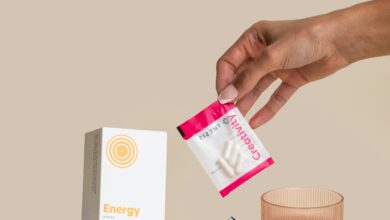How to Use Supplements for Weight Loss: A Comprehensive Guide

Weight loss supplements have become increasingly popular as people seek additional support in their journey to shed excess pounds. While these products can be helpful when used correctly, they are not magic pills and should be viewed as complements to a healthy diet, regular exercise, and lifestyle changes. In this article, we’ll explore how to use weight loss supplements effectively, discuss common types of supplements, and provide tips to ensure safety and maximize results.
What Are Weight Loss Supplements?
Weight loss supplements are dietary products designed to assist with weight management by:
- Boosting metabolism.
- Suppressing appetite.
- Reducing fat absorption.
- Increasing energy expenditure.
- Supporting overall health during weight loss.
These supplements come in various forms, including pills, powders, teas, and drinks. They often contain natural ingredients like herbs, vitamins, minerals, or synthetic compounds.
Common Types of Weight Loss Supplements
1. Appetite Suppressants
These supplements aim to reduce hunger cravings, helping you consume fewer calories. Common ingredients include:
- Glucomannan: A fiber that expands in the stomach, promoting fullness.
- 5-HTP (5-Hydroxytryptophan): May increase serotonin levels, which can help regulate appetite.
2. Fat Burners
Fat burners are designed to enhance calorie burning and fat metabolism. Popular ingredients include:
- Caffeine: Stimulates the central nervous system, boosting energy and metabolism.
- Green Tea Extract: Contains catechins and caffeine, which may increase fat oxidation.
- Capsaicin: Found in chili peppers, it may slightly boost metabolism.
3. Carb Blockers
Carb blockers inhibit enzymes that digest carbohydrates, reducing the number of carbs absorbed by the body. Key ingredients include:
- White Kidney Bean Extract: Prevents the breakdown of starches into glucose.
4. Fat Absorption Inhibitors
These supplements interfere with the digestion and absorption of dietary fats. The most well-known example is:
- Orlistat: Available over-the-counter (Alli) or by prescription (Xenical), it reduces fat absorption by up to 30%.
5. Metabolism Boosters
These supplements aim to increase your basal metabolic rate (BMR), allowing you to burn more calories at rest. Ingredients often include:
- L-Carnitine: Helps transport fatty acids into cells for energy production.
- Conjugated Linoleic Acid (CLA): May promote fat loss and muscle preservation.
6. Detox and Cleansing Products
While not directly tied to weight loss, detox teas and cleanses claim to “flush out toxins” and reduce bloating. However, their effectiveness is debated, and they should be approached with caution.
How to Use Weight Loss Supplements Effectively
To get the most out of weight loss supplements, follow these guidelines:
1. Consult a Healthcare Professional
Before starting any supplement regimen, consult with a doctor or registered dietitian, especially if you have underlying health conditions or are taking medications. Some supplements can interact with medications or cause side effects.
2. Combine with a Balanced Diet
Supplements are not substitutes for healthy eating. Focus on a nutrient-dense diet rich in lean proteins, whole grains, fruits, vegetables, and healthy fats. Supplements work best when paired with proper nutrition.
3. Incorporate Regular Exercise
Physical activity is essential for sustainable weight loss. Supplements like caffeine or green tea extract can enhance workout performance, but they won’t replace the need for consistent exercise.
4. Follow Recommended Dosages
Stick to the recommended dosage on the product label or as advised by your healthcare provider. Taking more than the recommended amount can lead to adverse effects or toxicity.
5. Be Patient and Realistic
Supplements are not quick fixes. Weight loss takes time, and supplements should be seen as tools to support gradual progress rather than instant results.
6. Track Your Progress
Monitor your weight, energy levels, and overall well-being while using supplements. This will help you determine whether the product is effective or if adjustments are needed.
Tips for Choosing Safe and Effective Supplements
With countless weight loss supplements on the market, it’s important to choose wisely. Here’s how to identify safe and effective options:
1. Look for Third-Party Testing
Choose supplements that have been tested by independent organizations like USP (United States Pharmacopeia) , NSF International , or ConsumerLab . These certifications ensure quality, purity, and accurate labeling.
2. Avoid Unrealistic Claims
Be wary of products promising rapid weight loss or miraculous results. If it sounds too good to be true, it probably is.
3. Check the Ingredient List
Opt for supplements with transparent ingredient lists and avoid those containing proprietary blends, which may hide potentially harmful substances.
4. Research Clinical Evidence
Look for supplements backed by scientific studies. For example, glucomannan and green tea extract have been shown to aid weight loss in clinical trials.
5. Beware of Side Effects
Some supplements can cause side effects such as jitteriness, digestive issues, or heart palpitations. Start with a small dose to assess tolerance.
Potential Risks and Precautions
While many weight loss supplements are safe when used as directed, there are potential risks to consider:
1. Interactions with Medications
Certain supplements, like caffeine or herbal extracts, may interact with prescription medications. Always check with your doctor before combining them.
2. Digestive Issues
Products like carb blockers or fat absorbers can cause gas, bloating, or diarrhea due to undigested nutrients passing through the digestive system.
3. Overstimulation
Stimulant-based supplements (e.g., those containing high doses of caffeine) can lead to insomnia, anxiety, or increased heart rate.
4. Liver Damage
Some weight loss supplements, particularly those containing unregulated or synthetic ingredients, have been linked to liver damage. Stick to reputable brands.
5. False Sense of Security
Relying solely on supplements without addressing diet and exercise can hinder long-term success.
The Role of Lifestyle Changes
While supplements can provide an extra edge, they are only one piece of the puzzle. Sustainable weight loss requires a holistic approach:
- Healthy Eating: Focus on portion control, mindful eating, and reducing processed foods.
- Regular Physical Activity: Aim for at least 150 minutes of moderate-intensity exercise per week.
- Adequate Sleep: Poor sleep can disrupt hormones that regulate hunger and appetite.
- Stress Management: Chronic stress can lead to emotional eating and weight gain.



